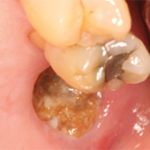Opana ER Pulled from U.S. Market Last month, the U.S. Food and Drug Administration (FDA) asked Endo Pharmaceuticals to remove oxymorphone hydrochloride extended release (Opana ER) from the U.S. market due to public health consequences related to abuse. The agency has concerns that the risks presented by the treatment do not outweigh its benefits.1 On…




